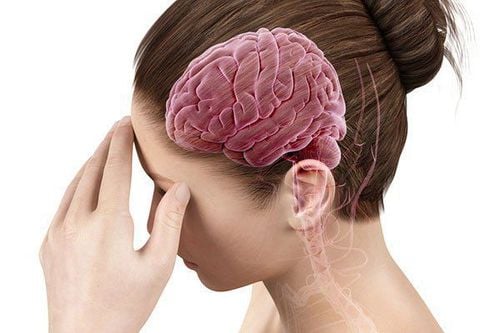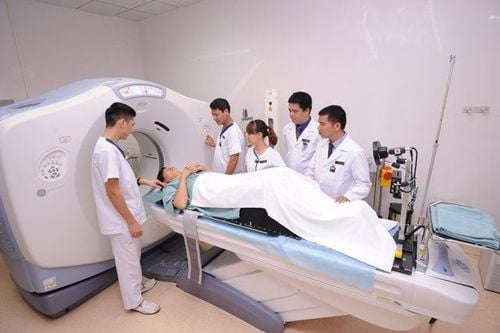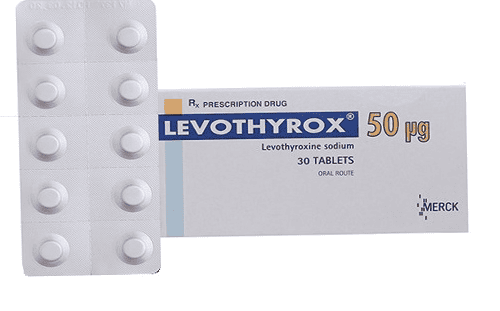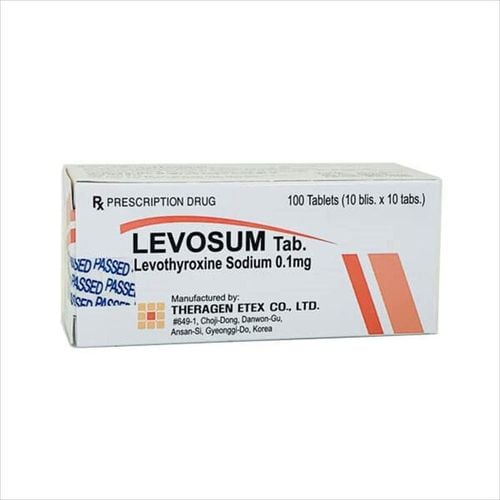This is an automatically translated article.
The article was professionally consulted with Master, Doctor Vu Thi Duyen - Doctor of Nephrology - Endocrinology - Department of Examination & Internal Medicine, Vinmec Hai Phong International General Hospital.Hypopituitarism is a condition in which the pituitary hormone is below normal. This is a condition in which the pituitary gland is impaired, leading to hormone deficiency and ultimately leading to failure of a variety of other endocrine glands such as adrenal insufficiency, hypothyroidism, hypogonadism, diabetes insipidus. etc...
1. What is hypopituitarism?
Hypopituitarism is a condition in which the pituitary gland is not working properly, reducing the amount of pituitary hormone produced and not meeting the body's needs. The pituitary gland located in the hypothalamus is a very important endocrine organ that directs the activities of other endocrine glands such as the thyroid and adrenal glands as well as the sex organs that produce hormones.The pituitary gland has an important function of regulating metabolic processes in the body such as blood pressure, water, sexual function, stress. When hypopituitarism results in failure of other endocrine glands such as thyroid, adrenal glands and gonads not working properly, causing a variety of disorders in the body's activities.
2. Causes of hypopituitarism

Hội chứng Sheehan có thể gây ra tình trạng nhồi máu tuyến yên
Causes of primary hypopituitarism:
Tumor: Massive tumor lesions such as pituitary adenoma, pituitary cyst, and metastatic cancer compress and reduce in size, leading to reduced pressure and deterioration function of the pituitary gland. Pituitary Infarction: Infarction of the pituitary gland due to Sheehan's syndrome occurs postpartum with hypopituitarism or vascular failure. Pituitary hemorrhage causes shock leading to pituitary collapse. Inflammatory processes, infections, abscesses: Meningitis caused by bacteria, tuberculosis, fungi, malaria, pituitary abscess, sarcoidosis, ... cause total hypopituitarism. Genes: Involved in translational factors and cell differentiation. Congenital hypopituitarism with pituitary gland disruption syndrome due to genetic mutations. Infiltrative disorders: Iron infection, Langerhans histiocytosis. Treatment: Immunosuppressive drugs cause hypopituitarism, surgery that often affects pituitary function, and radiation therapy after surgery. Autoimmune dysfunction: Lymphocytic pituitary inflammation is common in the postpartum period causing enlargement and destruction of the pituitary gland.

Nguyên nhân gây suy giảm hormone tuyến yên
Tumor: Benign hypothalamic tumor, skull tumor, metastatic malignant tumor from lung, chest. Treatment: Radiation therapy for tumors affecting the hypothalamus by radiation leads to pituitary hormone disorders or secondary pituitary deficiency. Intrusive lesions: Inflammatory processes such as cellulitis, sarcoidosis, and Langerhan's cause deficiency and decrease in pituitary hormone. Infections: Meningitis caused by tuberculosis, viruses, candida, immunodeficiency such as HIV, ... Brain trauma: Traumatic brain injury damages the skull base causing pituitary hormone deficiency.
3. Clinical symptoms of hypopituitarism
Clinical manifestations of hypopituitarism are diverse and are symptoms of other endocrine insufficiency such as thyroid, adrenal, and gonads.Fatigue, anorexia, muscle weakness, loss of appetite, vomiting, nausea, low blood pressure, decreased skin pigmentation. This is a manifestation of adrenal insufficiency, severe can cause high fever, hypoglycemia, pulse collapse, coma. Yellow dry skin, dry and brittle hair, sluggishness, sluggishness, low blood pressure, slow heart beat, hoarse voice, digestive disorders, constipation, these are manifestations of hypothyroidism. Hormonal disorders caused by hypopituitarism affect pubertal development such as testicles, small penis, thin skin, many wrinkles, decreased muscle mass, loss of beard, osteoporosis, sex drive reduction, impotence, male infertility (in men); delayed puberty, mammary gland failure, amenorrhea, female infertility, hair loss in the armpits and genitals, osteoporosis (in women). Lack of prolactin hormone in postpartum women reduces or does not produce milk, atrophy of the mammary glands, ... Deficiency of growth hormone GH due to hypopituitarism causes delayed teething, growth retardation, delayed puberty in children, ability to write poor memory and concentration, frequent low blood sugar and high risk of cardiovascular disease.

Rối loạn nội tiết tố do suy tuyến yên có thể gây vô sinh ở nữ giới
4. Diagnosis and treatment of hypopituitarism
Diagnosis of hypopituitarism is based on:Examination with clinical symptoms as above. Blood and urine tests to measure pituitary hormones. An MRI of the pituitary gland to check and evaluate the pituitary gland during hormone replacement therapy. Treatment of hypopituitarism is mainly based on the cause of the disease, including the following methods:
Taking hormone replacement drugs. Surgery is indicated in cases where tissue near the brain affects the pituitary gland or the pituitary gland is not developing normally.

Chụp MRI tuyến yên giúp chẩn đoán suy tuyến yên
Periodic health check-ups help detect health problems at an early stage. This is especially important for cancer. Vinmec's Department of General Health is always trusted and appreciated by customers for the quality of examination and services.
A team of highly qualified and experienced doctors: The doctors are Professors, PhDs, and Masters who are trained in prestigious, experienced and dedicated schools. Comprehensive - professional examination and consulting services: Provide diverse examination packages, suitable for the needs of many customers. After the examination, the customer will receive quick results and receive in-depth advice for the next course of action. Modern equipment: CT machine accurately detects cancer early even when there are no symptoms. High-resolution flexible endoscope helps to accurately detect disease and cancer at an early stage, without causing vomiting and discomfort. System of modern testing equipment, international standards, the world's leading advanced ultrasound machine system. Fast: For the basic package, customers only need one visit to complete the general health examination. Intensive check-up packages will take one to two days. In case the results are available (out-of-hospital blood collection), the doctor will advise immediately. Customers can use services from other specialties right at the Hospital with outstanding quality of treatment and services.
Please dial HOTLINE for more information or register for an appointment HERE. Download MyVinmec app to make appointments faster and to manage your bookings easily.













